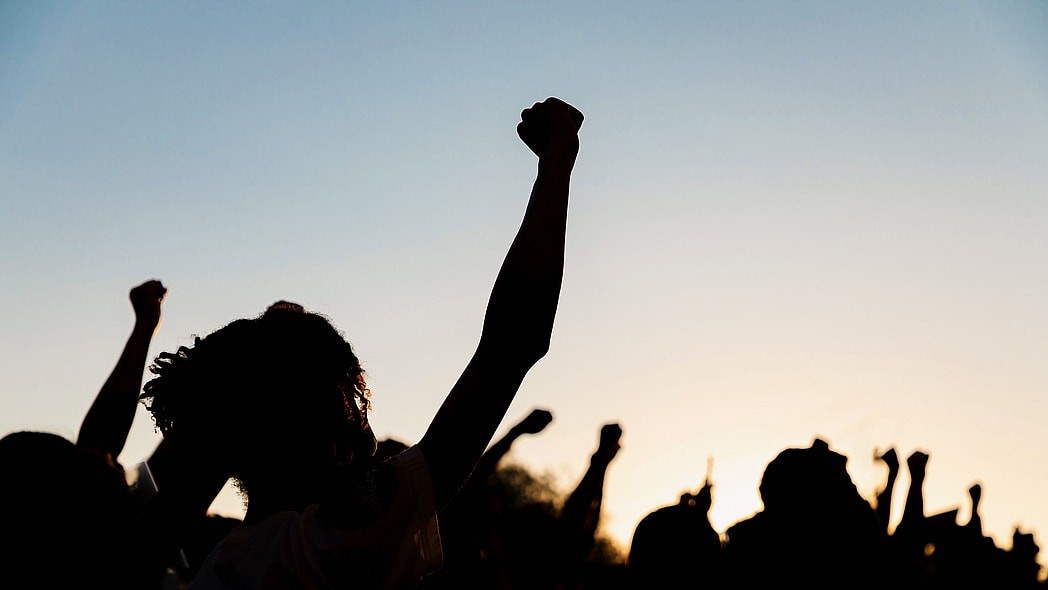Editor’s note: The following article is an op-ed, and the views expressed are the author’s own. Read more opinions on theGrio.
American writer James Baldwin famously asked, “How much time do you want for your progress?” In challenging the long and difficult road to Black liberation, he said, “You always told me it takes time. It’s taken my father’s time, my mother’s time, my uncles’ time, my brothers and my sisters’ time, my nieces and my nephews’ time. How much time do you want for your progress?” He uttered these words decades ago, and today, in 2023, Black communities continue to wait for progress as evidenced by the lack of complete bodily, social and political autonomy.
While Baldwin echoed this sentiment decades ago, he expressed what Black and brown youth feel today. Black and brown youth are growing increasingly impatient with what should be a basic American right — the unfettered pursuit of life, liberty and the pursuit of happiness. Young people have experienced white supremacy and a hierarchy of human value just as their elders experienced it. And young people of color are increasingly agitated at the slow march for justice, as their trust in the democratic process deteriorates.
And can we blame them? In Jackson, Mississippi, where I live, residents continue to suffer from unsafe water. Recently, our community filed a petition with the Environmental Protection Agency under the Safe Drinking Water Act demanding local, state and national officials ensure our loved ones have clean water — a basic right and need. Our community had already experienced lead contamination, boil alerts for water and water shutoffs.
Every facet of life for Black people in our state — and many other states — is fraught. From education equity to housing affordability to police violence and extrajudicial killings of Black people by police or while in police custody, our communities continue to be battered by a nation that professes one thing (that we are a land of opportunity for all) on paper but practices something completely different (racial injustice and racial subjugation). And Black children are not immune. A 10-year-old Black boy was arrested and jailed for peeing behind his mother’s car.
Even Black babies are not immune. In January, Mississippi Today warned that the state’s already dire Black maternal health rate was worsening. “Three years ago, Mississippi’s pregnancy-related mortality ratio was 33.2 deaths per 100,000 live births — the sixth-worst rate in America,” the news site reported. “But this week’s new report showed the state’s pregnancy-related mortality ratio had increased to 36.0 deaths per 100,000 live births.”
Additionally, Black people continue to be victimized and traumatized by unchecked and unabated police violence. As of Aug. 28, the Washington Post database of police violence cataloged 995 police killings in the United States in the past 12 months; a disproportion of that number are Black. These most recent acts of violence aside, Black people have been mistreated and, therefore, are skeptical of police. This says nothing of the recent indictments of several Mississippi sheriff deputies for abuse of Black men and poor white men.
Black youth see our communities harmed without recompense. We can no longer ask them to wait for justice because hope in justice on this side of heaven appears fleeting. This has grave consequences because nations are held together by the belief that our judicial, moral and legal systems work. When people lose trust in these systems, it becomes easier to delve into hopelessness.
It is incumbent upon elected officials to help restore hope in the democratic process. In the same way that our ancestors advocated for full access to the American dream, young people continue to make the case for their full inclusion. But time and time again, this nation has demonstrated that it does not see, value or honor Black lives.
Even when we make genuine strides at uplift, the forces of white supremacy attempt to push us back. For instance, Jackson is predominantly Black, and yet the conservative legislature has passed a law that gives the state police jurisdiction over our communities. And so the Capitol Police has expanded its jurisdiction into the city. This means that Jackson, which has its own police department, is now policed by two different law enforcement agencies. We have rallied at the Capitol, engaged legislators and mobilized the community. I am also a plaintiff in a lawsuit challenging state police control of the city because we know that our only hope is continuing to resist all forms of injustice.
Part of the responsibility of elders in our communities is to remind young people where power truly resides — with everyday people. Ordinary voters still wield incredible power, even if individual legislators espouse principles of white supremacy. This means that we can never stop registering people to vote, advocating for rights restoration for returning citizens and encouraging our communities to contact their elected officials and make their voices heard.
Consider even the damage of felony disenfranchisement laws, which have barred so many Black people from voting in Mississippi and across the nation. The recent 5th Circuit ruling that said that lifetime bans on voting for persons with felony convictions are unconstitutional should provide cause for hope. The arc of the moral universe indeed bends towards justice, even if the march to justice stalls or appears slower than we would like.
Young people must understand that we read the end of the book, and we know how this thing ends. But in the meantime, we must remain engaged, remain fired up and remain committed to building the beloved community.
Our ancestors saw the dehumanization of Black communities, but that didn’t stop them from dreaming, hoping and working. Our resolve must be as strong as theirs.

Nsombi Lambright is the executive director of One Voice and a member of the Black Southern Women’s Collaborative.
TheGrio is FREE on your TV via Apple TV, Amazon Fire, Roku and Android TV. Also, please download theGrio mobile apps today!


